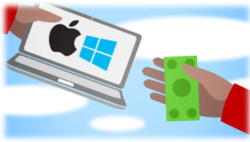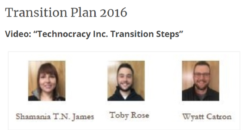ECONOMICS
Wikipedia – Economics is the social science that studies the production, distribution, and consumption of goods and services. Economics focuses on the behavior and interactions of economic agents and how economies work.
The typical classes teach economics as being about money – or using money for the economy. BUT, economics simply put is about the production and distribution and consumption. What if we take money out of the equation? How would it work then?
First- the fouir considered types of economics taught
(Nutshell version):

Traditional: Trade/Barter (Eggs for a haircut); minimal surplus production; Lack of access to wider products and services
Command: Centralized Control (government); possible to have suitable supply; job availability, Greed, corruption
Market: Not as free as proponents wish — rules and regulations constrain, Global ability, people owned businesses, opens to corruption and greed or Profit over People
Mixed or Dual: Government controls some things and leaves others unreviewed. Freedom to provide what people want, the line between what is controlled and what is not is a point of contention
Each of these have a Trade mentality – I give you this, you give me that. In that frame of mind someone is always owing someone else – Debt is the actual driving force.
What are Non-Monetary forms of Economics?
There is a paper by Edgar S. Cahn that talks about non-monetary to mean household labor, volunteer work and how that affects a monetary economy, but that is not what we are referring to; we are not concerned with how things affect a monetary system.
There is research regarding who actually “owns” the money in the United States. We have all heard of the 1% of the 1% having most of the riches or more than the bottom 90% combined. That does leave 9.99 % who are in the upper class, but not the controllers. That is ONE person in 1,000 who controls our very lives; only because they have money.
In the Technocracy Plan, no one would have control of our lives in such a way. Proven or provable methods constituting of criteria that would take into account the effects of any decision on society and the environment would be implemented for infrastructure, health care, education, housing, etc.
What Other Types of Economics are there?
Doughnut Economics: Kate Raworth has detailed a plan she calls the Doughnut of social and planetary boundaries. In it is more details that correspond to what the Interns put together in the 2016 Transition Plan.
Resource Based Economics (RBE) Resource based economics or resource-based economy is a proposed system in which all goods and services are available without the use of money, credits, barter or any system of debt or servitude.
Wikipedia – A resource-based economy or natural-resource-based economy is the economy of a country whose gross national product or gross domestic product to a large extent comes from natural resources.
So, are we talking about using the natural resources as a base for a money based or Price System Economics? Not for a monetary based economy. Are we talking about a Utopian world where there is no corruption, greed, disease, or problems? No.
Technocracy’s Plan is talking about calculating the energy resources available, wind, water, movement, solar, and others as they become available and using that energy resource to provide an account for the basics of life: Infrastructure, Education, Healthcare, Housing, Public Safety, Clothing, etc.

In the Technocracy Transition Plan, we go into the steps needed to transition from a money based economic system to an Energy Currency System. There are details in the plan that need filling out; exactly how will we convert the calculated energy available into usable services / items for use; what will the checks and balances be to avoid misuse. Money creates its own corruption problems, but some people are internally corrupt regardless of the system. There are many details that will be worked out as the transition time arrives. All of the structures are already in place, we need only the movement.
